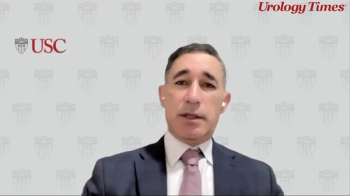
Sia Daneshmand, MD, discusses evolving care strategies after enfortumab vedotin plus pembrolizumab in bladder cancer.

Sia Daneshmand, MD, discusses evolving care strategies after enfortumab vedotin plus pembrolizumab in bladder cancer.

“It's still relatively early, but this study in close to 1000 patients validated this algorithm, and it's now being studied prospectively as well,” says Yair Lotan, MD.

“There's definitely a lot of hype around the concept of artificial intelligence, and I think we're in the early phases of trying to figure out where it makes sense to adopt the technology and how to incorporate into clinical care,” says Yair Lotan, MD.
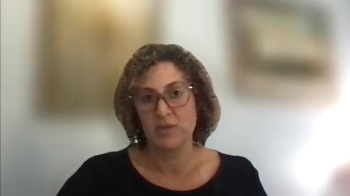
"We have now realized that in some patients with a low number of metastatic sites, providing systemic treatment and providing some site-targeted treatment will provide lasting benefit or at least a temporary benefit that will help ameliorate the need for the systemic treatments or very intense systemic treatments," says Armine K. Smith, MD.
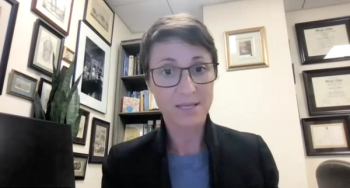
“In terms of trying to help patients access the services, the biggest part is just being aware of what's available where you work,” says Sarah P. Psutka, MD, MS.
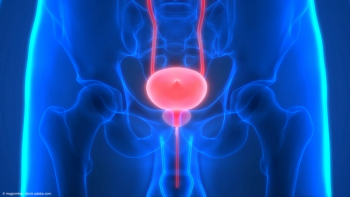
Laura Bukavina, MD, MPH, highlights a BCAN Think Tank session on real-world applications of microbiome in bladder cancer.

In this interview, Yair Lotan, MD, discusses the steps needed for urine biomarkers to be incorporated into standard clinical practice in bladder cancer management.
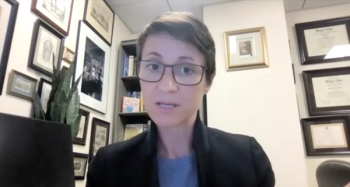
"Given the time constraints and financial constraints of working in the systems that we all work within, trying to make it easier to get patients to these adjuvant services that do exist and making sure we capitalize and utilize those is critical," says Sarah P. Psutka, MD, MS.

“It’s an exciting world in which we have all of these complications about what to do because it means we have a lot more choices for our patients,” said Scott Tagawa, MD.

Yair Lotan, MD, explains how urine biomarker research needs to focus on how these markers can optimally fit into clinical algorithms for bladder cancer.

“I think this is a multidisciplinary approach,” says Monika Joshi, MD, MRCP.

Suzanne Merrill, MD, recaps the BCAN 2023 Think Tank session she co-chaired that covered prehabilitation programs, urinary diversion management, and other focal areas aimed at enhancing the quality of bladder cancer care in the community.
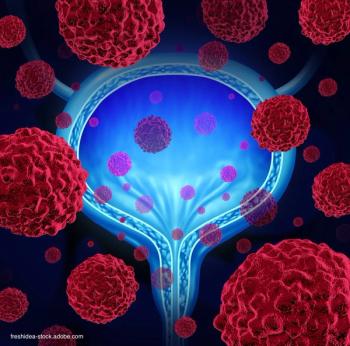
“In many ways the field of urine markers is evolving but it has also hit some obstacles,” says Yair Lotan, MD.

In this interview, Scott Tagawa MD, highlights a session from the BCAN 2023 Think Tank exploring the latest developments in the treatment of patients with advanced urothelial carcinoma.

“The more and more people we can get excited about this and collaborate with, the better results we're going to get and the more we're going to learn,” says Sunil H. Patel, MD, MA.

“I think we're thinking about bladder cancer in a different mindset,” says Sunil H. Patel, MD, MA.

"I'm really optimistic that the session we are conducting will provide some recommendations [and] some ideas that will help us think about utilizing epigenetic therapies in a very evidence-based way," says Ania Woloszynska, PhD.
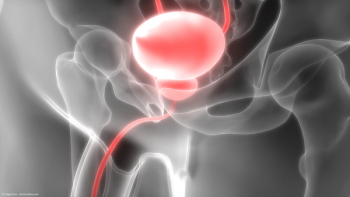
“I think radiation therapy in bladder cancer could be divided into organ preservation, which is more for localized bladder cancer, as well as palliative approaches, which is very well known,” says Monika Joshi, MD, MRCP.
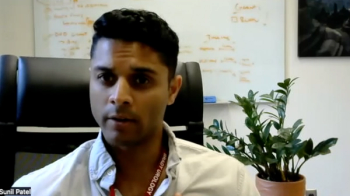
"We've made a lot of big strides in smoking incidence, however, we're still seeing the bladder cancer rates, even though a slight decrease, we're still seeing it holding on," says Sunil H. Patel, MD, MA.
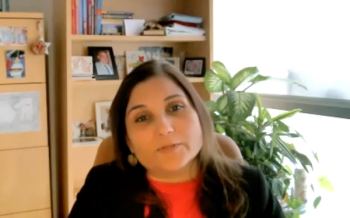
"Our session this year is focusing on radiation across all the spectrums, so something more than our comfort zone or what the standard of care is," says Monika Joshi, MD, MRCP.